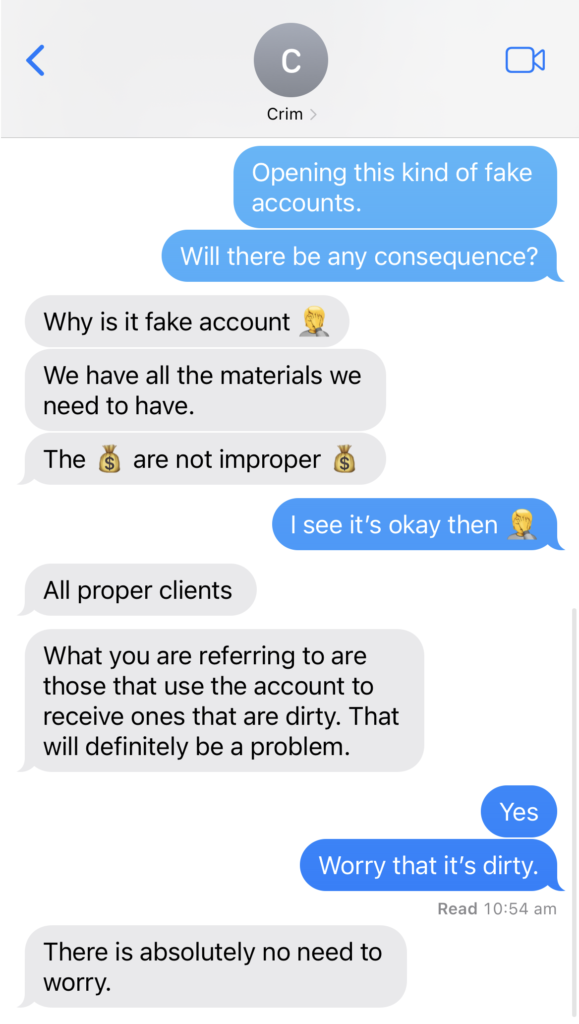AFP warn university students about money muling
Australian law enforcement agencies have come together to deliver a campaign to raise awareness of the growing trend involving criminals recruiting financially vulnerable university students as money mules.

A money mule is a person who receives money from a third party into their bank account, transfers it into another account and obtains a commission for it.
Police are concerned about criminals targeting students, including through lucrative job adverts offering quick and easy money in exchange for moving funds through their bank accounts.
While this period is an exciting time for students, it is also an opportunistic time for organised criminals seeking to recruit money mules.
Criminal networks are targeting and attempting to recruit university students as money mules, which may be due to their financial situations and their active search for part-time employment. International students have added vulnerabilities due to language barriers and their limited knowledge of Australian criminal law.

The month-long campaign will be rolled out nationally across 39 universities by the AFP-led Joint Policing Cybercrime Coordination Centre (JPC3), and will include a digital information pack, marketing material on university campuses and advertising on social media.
The materials seek to educate students on what a money mule is, how to spot this cyber-enabled crime and what people should do if they think they’ve fallen victim to money muling.
To effectively reach a wide group of international students, the campaign will be translated and delivered in seven languages, including Mandarin Chinese, Hindi, Punjabi, Nepali, Spanish, Vietnamese and Thai.
AFP Detective Superintendent Tim Stainton said criminals attracted students through job adverts that required no experience and offered weekly payments and flexible work arrangements.

“Often the only requirements for the job are access to a mobile phone or computer and an Australian bank account to receive and transfer funds at the direction of the criminal group – this is a major red flag,” Det Supt Stainton said.
“If a job opportunity seems too good to be true, then it probably isn’t legitimate. If you are being offered significant sums of money to just move money through your bank account, then it is likely you are committing a criminal offence.
“You can do your due diligence by researching the business to see if they have an online presence, check if they have legitimate contact details and find out if they’re based in Australia.”

In addition to posting the job ads on platforms such as online classifieds and social media, police are also seeing criminals proactively contact students face-to-face and through community networks to recruit more money mules.
Contact is made through social media platforms, instant messaging apps, email, pop-up ads and in-person, and authorities encourage everyone to be skeptical when approached by someone you don’t know, offering easy money for limited work.
Tips for staying safe from money mule recruitment scams:
- Don’t engage with online posts offering large sums of money.
- Don’t accept message requests from people you don’t know, and if you receive a message from a friend with a link to click, speak to them in person before you respond.
- Don’t share banking and personal details with anyone you don’t know or trust.
- If someone asks to use or ‘borrow’ your account, say no.
- If you suspect something is not right, reject the offer.

While being a money mule may seem like a low risk, high reward and victimless crime, doing so is a serious crime.
“Money mules may try and convince themselves that what they’re doing is a victimless crime which gives them a quick paycheck, but this couldn’t be further from the truth,” Det. Supt. Stainton said.
“Moving money for criminals gives these syndicates access to their dirty money and helps fund future criminal ventures, like drug trafficking, child exploitation, cybercrime and cyber-enabled fraud.
“By being a money mule, unwittingly or not, you are complicit in a money laundering offence for which you can be arrested and charged by the police. Money laundering offences attract significant penalties including jail time.
“Having a criminal record can impact your ability to obtain employment, travel to certain countries and if you are an international student, it can adversely affect your ability to retain an Australian student visa.”
Identifying and prosecuting money mules remains a focus for the AFP. Last year, the JPC3 undertook major money mule investigations, including Operation Wickham and the Europol-led European Money Mule Action 9 (EMMA9).
Under Operation Wickham, six Chinese nationals were arrested for their alleged involvement in laundering money for an organised criminal syndicate. This included the arrest of two 18-year-old Chinese nationals who were studying in Australia.
The JPC3 brings together Australian law enforcement and key industry and international partners to fight cybercrime and prevent harm and financial loss to the Australian community.
We are committed to equipping all Australians with the knowledge and resources to protect themselves against cybercrime.
Watch our cybercrime prevention videos and protect yourself from being a victim of cybercrime.
If there is an immediate threat to life or risk of harm, call 000.
If you are a victim of cybercrime, report it to police using Report Cyber. (AFP)



